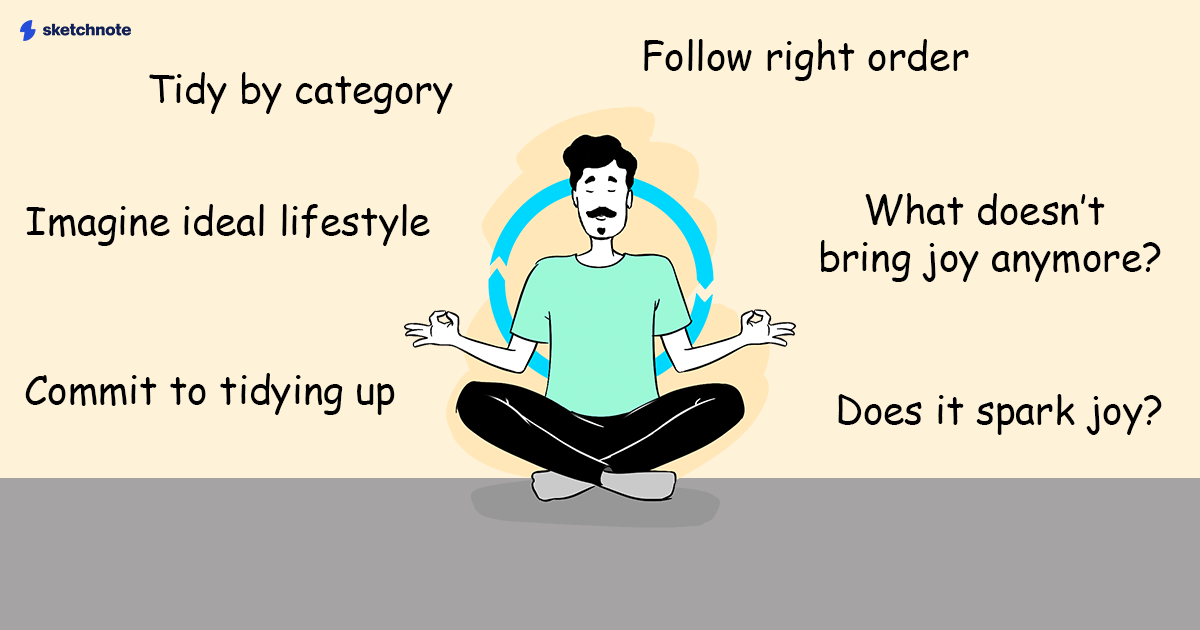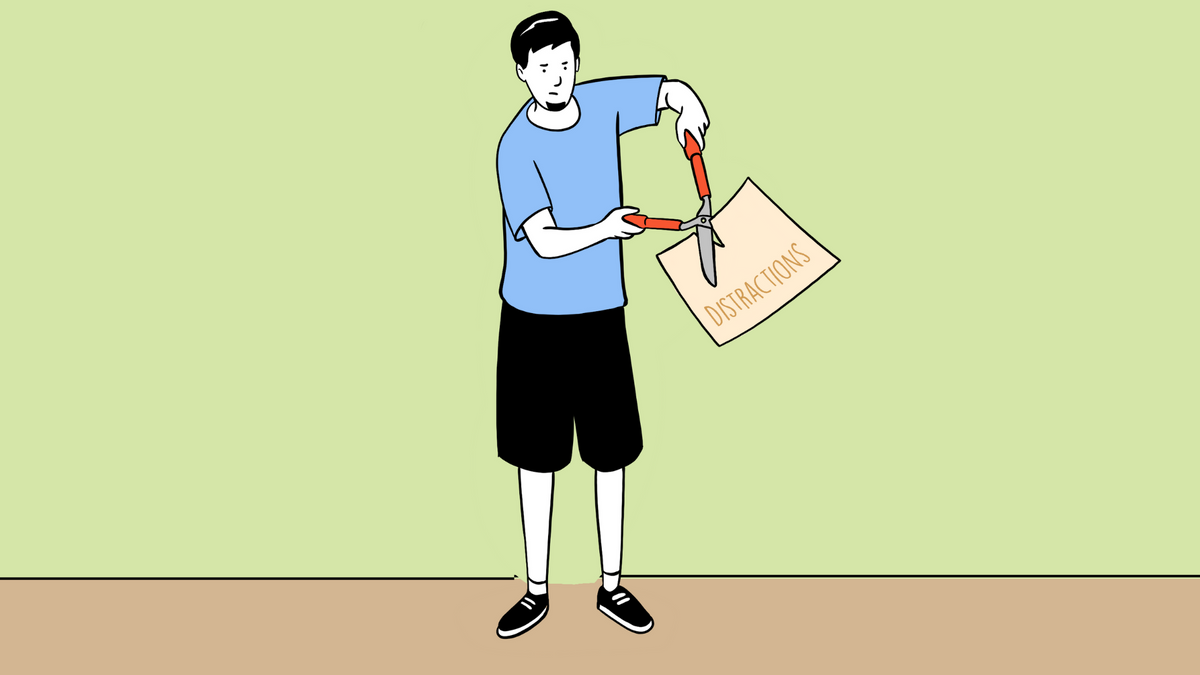The KONMARI method, (also known as Marie Kondo Method) is more than just tidying up your surroundings and your life. It has can potential to cross over into your professional life as well and help you put your focus back on things that need your attention the most.
The idea is that the Marie Kondo method for project management can help CEOs and vertical heads declutter their tasks, focus on what is important, and let go of anything that is not adding value. Let's tell you a little about how we adapted the Marie Kondo tidying method for great results at Sketchnote.
What is the Konmari method?
But first, what is the Marie Kondo method at all? The Konmari method is the brainchild of Kondo, who was obsessed with tidying up from a very young age. With best-selling books and two Netflix shows to her name, she has devised the Konmari method. Even if you don't know Marie herself, you've probably heard of the term, "Spark joy" to wonder if an object gives you the right kind of satisfaction.
Learning about and following the Konmari method religiously for about eight months now has truly added a spring to my step. Being mindful of my living space, and asking myself whether each object at my home sparked joy (which is a major part of the Konmari method), set me on an unexpected emotionally freeing journey. Discarding—with gratitude—items that no longer serve me, goaded me on a spiritual path of sorts.
The attitude of housing only those things that fill me with enthusiasm, started shaping how I viewed other areas of my life, a few months ago. In seemingly unsuspecting ways, I started applying the teachings of Marie Kondo in my social life, hobbies, and even my work life!
You might be surprised at how these Marie Kondo decluttering tips found use in the big, bad world of Project Management. But looking back, it seems like the most natural extension of a process focused on eliminating excess and nourishing growth.
How can we ‘tidy up’ at work?
One Sunday evening, while driving home after dropping off some books that I no longer required, I glance at my ever-active work text chain.
The past few months had been a challenge at Sketchnote—something that we had all relished. The top brass were racing towards a public launch of our product. And our lean team was on the grind, round the clock. Even while in Beta mode, the product team was churning feature updates every week!
To keep up this pace, we added new talent to the team. While this sounds like glorious, uproaring success (which it is!), it came with its fair share of issues.
Watching those texts unfold was like watching the same film over and over again. And it wasn't a fun one at that! It looked like my Team Lead was firefighting again, rushing our team to meet another deadline.
Teething issues with new staff onboard, changing user requirements, and roadblocks in communication and accountability had become commonplace at work. This, naturally, brought along with it a lot of work-related anxiety and pressure to deliver.
These sanitation issues were revealing themselves to be major blockades in our productivity, and the work culture we aspire for at Sketchnote. I wondered if I could aim to have the zen that I had developed in other areas of my life (courtesy of Marie Kondo's life-changing method of tidying up) into my project management at work. And, instantly, I knew I had a lot of changes to be made the following Monday morning!

What are the Marie Kondo principles?
I showed up at work with a lot of enthusiasm the next day, and a box of yummy donuts! And as we feasted on those treats during our weekly catch-up, I passed around printouts of the main aspects of the Marie Kondo cleaning method. I began to share with my team how Marie Kondo's tips helped me be more mindful and organized. And how these changes have bought a lot of calm into my life.
I talked about how we could practice Marie Kondo's principles in our work-life too, to gain that much-needed zen. The team began to lean in. It looked like they were already on board! A teammate pulled up the 6 Marie Kondo principles on her phone, and we began discussing them. Let me tell you a bit about Kondo's principles are:
- Commit yourself to tidying up
- Imagine your ideal lifestyle
- Examine commitments that no longer bring you joy
- Tidy by category, not location
- Follow the right order
- Ask yourself if it ‘sparks joy’
In the conversation that followed, all of us pitched in on how we can apply these principles at work. And we could see everything change that morning!
Ace the art and science of project management using the Marie Kondo method
The enthusiasm among the teammates was palpable. We started off by writing out our Vision and Mission statements as a team, one more time. What we all resoundingly agreed upon and included in there was having an organized work based on systematic and realistic planning. The team's commitment to change was not surprising, as they were all high-performers in their fields and respected their work.
Over the next few days, our teammates took a hard look at their timesheets to examine every aspect of their day. In the many discussions that followed, several of us expressed that ad hoc Status Update calls in the middle of the day were a drain on their time.
Also, they wanted a place to document their progress so that all the teammates are on the same page. The changes that we implemented here were using task cards to detail the task requirements and update their progress status. We also added Daily Standup to our routine for the team to stay aligned, daily!
In the past, planning and shipping features were a robust, though a more extemporaneous activity. As our roster expands and there a million moving parts, we now have a more orderly approach from ideating to delivering product features. Sprint planning is almost a monthly activity now. And boy has that saved us a lot of time and money!
What's the secret of the Konmari Method?
While applying the Marie Kondo method for project management has allowed us to become a well-oiled productive machine, we do have friction at times. But faith in the processes that we have mutually laid out, the calmness from orderly work, and mutual trust, helps us stay on track. And I believe this trust is the lesser talked about aspect of the Konmari method.



